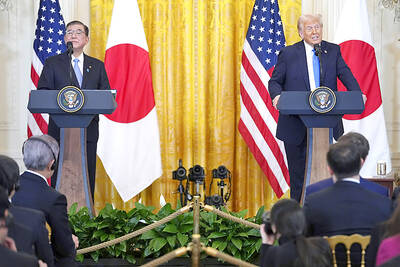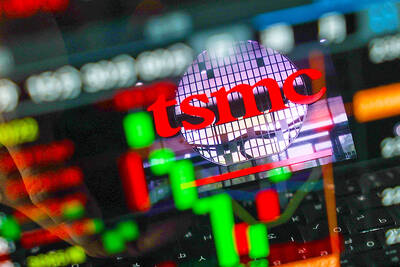Prosecutors said yesterday that they had barred former Sino Swearingen Aircraft Corp (SSAC) chairman Kuo Ching-chiang (郭清江) from leaving the county while an investigation into an embezzlement case is in progress.
SSAC is a joint venture between Taiwan's Sino Aerospace Investment Corp -- of which the Ministry of Economic Affairs is a trustee -- and Swearingen Aircraft Corp of San Antonio, Texas.
Since its establishment in 1996, Taiwan has invested about US$600 million in SSAC, but the company only won regulatory approval to build business aircraft in late 2005 and so far has only delivered one plane.
The Supreme Prosecutors Office said yesterday that prosecutors from its Special Investigation Panel were trying to determine if irregularities in how the firm was managed could have led to the substantial deficit it now faces.
The office said prosecutors had interviewed Kuo and ministry officials and that the ministry had handed documents about management of the company.
Prosecutors said Kuo was barred from leaving the country soon after being questioned.
As Kuo frequently travels between Taiwan and the US, the ban should facilitate the investigation, the office said.
It said the investigation was launched last month, but would not comment on whether any solid evidence of embezzlement or corruption had been found.
Kuo took over as SSAC chairman and chief executive officer in September 2005.
He offered his resignation last April.
SSAC hoped to transfer part of the design and manufacturing work back to Taiwan to help the country develop its aeronautical sector, but the company instead offered foreign companies contracts for manufacturing work, which went against the goals announced when the company was established.

The US-Japan joint statement released on Friday not mentioning the “one China” policy might be a sign that US President Donald Trump intends to decouple US-China relations from Taiwan, a Taiwanese academic said. Following Trump’s meeting with Japanese Prime Minister Shigeru Ishiba on Friday, the US and Japan issued a joint statement where they reaffirmed the importance of peace and stability in the Taiwan Strait and support for Taiwan’s meaningful participation in international organizations. Trump has not personally brought up the “one China” policy in more than a year, National Taiwan University Department of Political Science Associate Professor Chen Shih-min (陳世民)

‘NEVER!’ Taiwan FactCheck Center said it had only received donations from the Open Society Foundations, which supports nonprofits that promote democratic values Taiwan FactCheck Center (TFC) has never received any donation from the US Agency for International Development (USAID), a cofounder of the organization wrote on his Facebook page on Sunday. The Taipei-based organization was established in 2018 by Taiwan Media Watch Foundation and the Association of Quality Journalism to monitor and verify news and information accuracy. It was officially registered as a foundation in 2021. National Chung Cheng University communications professor Lo Shih-hung (羅世宏), a cofounder and chairman of TFC, was responding to online rumors that the TFC receives funding from the US government’s humanitarian assistance agency via the Open Society Foundations (OSF),

ANNUAL LIGHT SHOW: The lanterns are exhibited near Taoyuan’s high-speed rail station and around the Taoyuan Sports Park Station of the airport MRT line More than 400 lanterns are to be on display at the annual Taiwan Lantern Festival, which officially starts in Taoyuan today. The city is hosting the festival for the second time — the first time was in 2016. The Tourism Administration held a rehearsal of the festival last night. Chunghwa Telecom donated the main lantern of the festival to the Taoyuan City Government. The lanterns are exhibited in two main areas: near the high-speed rail (HSR) station in Taoyuan, which is at the A18 station of the Taoyuan Airport MRT, and around the Taoyuan Sports Park Station of the MRT

An alleged US government plan to encourage Taiwan Semiconductor Manufacturing Co (TSMC) to form a joint venture with Intel to boost US chipmaking would place the Taiwanese foundry giant in a more disadvantageous position than proposed tariffs on imported chips, a semiconductor expert said yesterday. If TSMC forms a joint venture with its US rival, it faces the risk of technology outflow, said Liu Pei-chen (劉佩真), a researcher at the Taiwan Industry Economics Database of the Taiwan Institute of Economic Research. A report by international financial services firm Baird said that Asia semiconductor supply chain talks suggest that the US government would